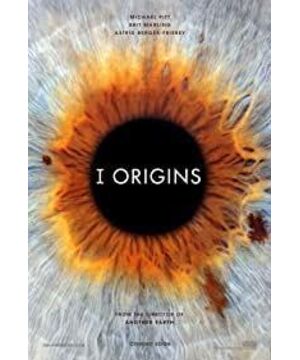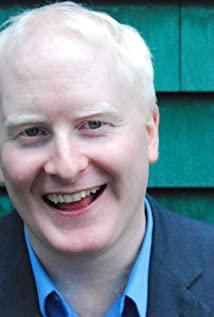I can't categorize this movie.
Let's start from the beginning.
I do believe in love at first sight, and I believe that the first time I see it, there is a feeling of being familiar with it for many years. And this situation does exist in reality. If you have to explain love at first sight from a scientific point of view, it can only be attributed to feelings. Of course, the feeling is not a scientific statement, and it is really difficult to explain it with scientific methods.
Ian's Sophie's eyes fall in love at first sight, which is understandable, because the eyes fall in love with a person, this is normal, to use a very modern saying: "feel it".
However, the two have a conflict in belief, which is the fuse of the plot of the film. Sufis are clearly god-believers, while Ian is a materialist hoping to defeat religious doctrines with the evolutionary theory of eyes. I have to say that the screenwriter's entry point is very good. Although everyone knows a little about iris recognition, they don't know much about the theory of eye evolution. It is precisely because of this that this film has room to play as a screenwriter.
The conflict of beliefs started with the gene Karen discovered in the laboratory, and that day was when Ian and Sophie went to get a marriage license. The marriage certificate was not obtained, but it caught up with Ian and Sophie to go to the laboratory. Sophie is a religious believer and has always been unhappy with Ian's anti-religious and scientific thoughts. In the laboratory, Sophie's performance was indeed like this. She was depressed in the laboratory. Karen walked away now knowingly. Then the wrong thing happened. Ian and Sophie accidentally spilled formalin into Ian's eyes. They had no choice but to call Karen back to help Ian rinse his eyes. Then Ian and Sophie went home. The elevator encountered a malfunction in the middle. Ian climbed out from between the floors. He wanted to rescue Sophie again, but Sophie was cut off by the falling elevator and died on the spot. Tragedy, alas. It is also this plot that triggers what the film is going to really tell later.
However, next, Ian and Karen kissed before Sophie went there for a few days. This made me unable to understand. Could it be that Americans all use kisses to comfort others? Off topic here, just complaining.
Ian and Karen had children at a time when iris recognition technology was beginning to be socially recognized and adopted. Their child also had iris data entry, only to find out that their child's iris was the same as that of a deceased person. This then led to a series of episodes looking for the same iris. Of course, the final climax must be the search for Sophie's iris. Everything in the end revealed that the little Indian girl was Sophie's afterlife.
I really don't want to spoil it, it's tiring to code words.
About the afterlife, countless people are looking for the truth. In recent years, some people have also been investigating the situation of people with memories of previous lives, but until now, I don't know if it is true or not.
But the final result shows that religious belief trumps scientific research. Although the final movie did not draw a conclusion, the conclusion is already in everyone's heart. From the point of view of religious belief, science is also created by God, and you are just studying what God created. You study the things of God in order to try to overthrow the idea of God's existence, which is a paradox in itself.
One of the biggest taboos of Christianity: denying the existence of God.
Ian denies the existence of God, so Sophie goes and lives to convince Ian of the false truths of science.
God will always appear to you at the right time, and you cannot deny God at that time.
The director should also be a Christian. The scientific argument at the beginning and the confirmation of the existence of the afterlife at the end all show the director's position. The expression of the plot is not perfect. Although it is tricky to attract the audience, the development of the plot is not tense and orderly. Moreover, the director did not come to a conclusion in the end, everything has to be the audience's own conclusion.
Therefore, the topic selection of this film is very good, and the eyes alone can attract a group of audiences who pursue perfection. However, the narrative style is a little pale. Not a classic movie.
Is science real, or is God real? If you still want to find out, look at your own body structure. What people can do is always to discover, and what can really be created, four words are omitted here.
View more about I Origins reviews










